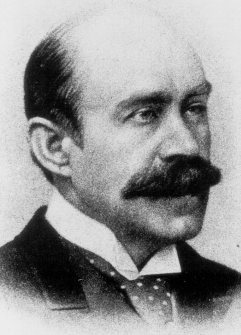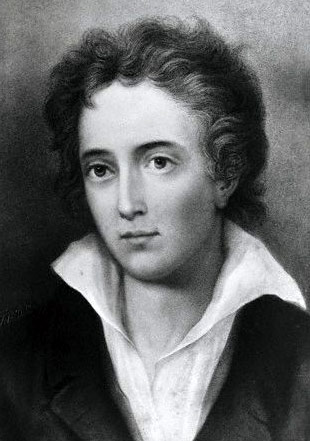I was really worried about taking this class when I first started. I had heard really horrible things about literary criticism and didn't want to take it at all. Then, when I bought my books and saw that we not only are reading Don Quixote (which is rather hefty), but also N. Frye I have to admit that I panicked a little. THEN, when we had to memorize all of 'Idea of Order' I'll admit that my palms started sweating and I began to have heart palpitations...
Flash to 4 months later, the good news is I'm still alive! I've given hours of my time to reading N. Frye, Don Q, the critics and memorizing Idea. I am a better person because of it, not only in re-reading DQ and re-memorizing Idea, but revisiting the beauty of the critic's apologizes. In spite of all the work, I really did enjoy this class and am sad that it's ending.
Friday, December 12, 2008
Friday, December 12
INDIVIDUAL PRESENTATIONS:
Chris:
- Dream about the power he has
- Chronicles about a man that falls through the cracks, finds a ruby and chooses stairs
John:
- Wrote a depressing story
- Presentation a poem: about autumn taking away, but finding life
Alex:
- Doesn’t want to apologize because the non-English majors should apologize to him
- If you listen to music, you listen to poetry
- Learn even through fiction
- Write down what you know, and make others know it
- Writing is the best way for him to live and help others learn
- Likes the fiction, not the reality (literature creates other realities)
_________________________________________
TEST QUESTIONS:
- new criticism: ‘formalism’ values technique; the text itself; stay inside the text; likes unity in works; no irrelevant personal associations
- deconstruction: no absolute meaning to any text; contrasting new: there is no outside the text; everything is a text; counters unity: everything works towards: ‘the well wrought urn’ by cleanth brookes; STC: form and satisfaction in every part, like the whole; ‘everything is partially rhetorical, and therefore literary… if so then our literary universe has expanded into a…’ said Frye (pg 350), Frye was one of these
- feminism: reductive: looking at the text w/ spectacles that see author, characters and how they should be thought of: throw away if not there. expansive: bell hooks, what kind of literary work and understandings about gender
- reader-response: classroom metaphors of the spectacles: ‘see everything differently w/ different glasses’ you see what you want to see; ‘irreverent’ connections are important; you see what’s there and yourself too; Santa= death to Sexson; it doesn’t mean that you can make a poem mean whatever you want it to mean, but you can see things that are connected
- psycho-analysts: don’t make fun of Freud, he was one, YOU created by him, great inventors of the modern age because the truth is unseen
- Marxism: don’t see what’s around us; look at social cultures and relationships; class struggles; Fight Club fits everything
1. Criticism vs complaint: (pg ? DQ)
2. In Harold Bloom’s intro Edith Grossman was the __________ of translators. ~ Glen Gould
3. What secret enchanted thing does Don Antonio and DQ that can tell the truth? ~ the enchanted head
4. What is the English translation of DQ in Spanish? ~DQ of the stains (stained glass windows)
5. What happens to DQ in the cave of Montesano’s? ~years were added to his life- genre of literature where time is irrelevant (long and short)
6. Name of Knight? ~knight of white moon
7. Who really was the name who put on the knight of the mirrors, moons and woods? ~Bachelor Carasco
8. pg 804 DQ “to believe that the things of this life will remain unchanged is to believe the ________?” ~the impossible
9. pg 346: Frye, he’s a spectacle-wearing fool “the culture of the past is not only the memory of man-kind, but our own buried life, and the study of it leads to a recognition…in which we see not our past lives but the …reader is … make it new” to make it new you have to make it old, back to the origins
10. Ezra Pound: ‘make it new’
*Only 25 questions, 2 points each
*NEED TO KNOW: the poem, DQ, and criticism schools
Tuesday, December 9, 2008
Wednesday, Decemeber 10
GROUP PRESENTATIONS 3:
Group 6: psycho-analysts
FREUDIAN PHALLIC HOUR:
Group 6: psycho-analysts
FREUDIAN PHALLIC HOUR:
- Freud: Kari
- Oedipus: Dustin
- Hamlet: Erica
- DQ: Kelsey
- Cervantes: Jake
- Little Red Riding Hood: Victoria
- author analyzed as well as work
- main ideas:
- symbolism
- unconscious desires
- intertextuality
- my favorite part: When DQ challenged Cervantes to MORTAL KOMBAT!
__________________________________
Group 5: Marxists
MARXIST THEORY AND DON QUIXOTE
- Marx: Kyle
- Walter Benjamin: Ben
- STC: Chelsea
- Sancho Panza: Sarah
- DQ: Heather
- George Lukas: Lisa
- Narrator: Danielle
- Marxist vs STC were against each other
- Marxists: no imagination and artistic quality, all about social class and economic (value and devalue), time, author's social class and economic stance into writing
- STC: all about imagination and artistic quality
Frye's Archetypes of Literature
 To me, reading Frye is like reading Darwin. Both are brilliant, but so scientific! Or perhaps it is my ignorance that makes all things intelligent sound scientific. Maybe I should get some 'intelligent-reading eyes' so I can understand more of what he is talking about. It's not that I dislike his writing, or Darwin's (I actually like them both) but I struggle. But I guess that the best things in life don't come without struggle, so it's probably right. He does say a few things that are really profound and stood out to me though. Like "art, like
To me, reading Frye is like reading Darwin. Both are brilliant, but so scientific! Or perhaps it is my ignorance that makes all things intelligent sound scientific. Maybe I should get some 'intelligent-reading eyes' so I can understand more of what he is talking about. It's not that I dislike his writing, or Darwin's (I actually like them both) but I struggle. But I guess that the best things in life don't come without struggle, so it's probably right. He does say a few things that are really profound and stood out to me though. Like "art, like  nature, is the subject of a systematic study, and has to be distinguished from the study itself, which is criticism." This is beautiful, but I guess I got spoiled by Shelley and Keats and have to look a little harder to see the appeal. I also love the way he talks about poets "the fact that revision is possible, that the poet makes change not because he likes them better but because they are better, means that poems, like poets, are born and not made." I really agree with this because it is hard work to be a writer, and I think many times people take all the work it actually takes for granted when they see the finished project.
nature, is the subject of a systematic study, and has to be distinguished from the study itself, which is criticism." This is beautiful, but I guess I got spoiled by Shelley and Keats and have to look a little harder to see the appeal. I also love the way he talks about poets "the fact that revision is possible, that the poet makes change not because he likes them better but because they are better, means that poems, like poets, are born and not made." I really agree with this because it is hard work to be a writer, and I think many times people take all the work it actually takes for granted when they see the finished project. Walter Pater
 I'm pretty sure that I found my new favorite author. Walter Pater is so elegant and profound. I was so excited when I read his 'conclusion from studies in the history of the renaissance' that I not only highlighted practically the entire excerpt, but also I read it to Jessi and called both my sister and mom to read them my favorite parts. Although both of them claim to be too stupid to understand what I talk about, they both thought it was pretty. Frustrated as I was with their lack of enthusiasm, my love is not squelched. The last paragraph is my favorite, so I will only quote that because it's rather lengthy.
I'm pretty sure that I found my new favorite author. Walter Pater is so elegant and profound. I was so excited when I read his 'conclusion from studies in the history of the renaissance' that I not only highlighted practically the entire excerpt, but also I read it to Jessi and called both my sister and mom to read them my favorite parts. Although both of them claim to be too stupid to understand what I talk about, they both thought it was pretty. Frustrated as I was with their lack of enthusiasm, my love is not squelched. The last paragraph is my favorite, so I will only quote that because it's rather lengthy. "Victor Hugo says: we are all under the sentence of death but with a sort of indefinite reprieve... we have an interval, and then our place knows us no more. Some spend this interval in listlessness, some in high passions, the wisest, at least among 'the children of this world,' in art and song. For our one chance lies in expanding that interval, in getting as many pulsations as possible into the given time. Great passions may  give us this quickened sense of life, ecstasy and sorrow of love, the various forms of enthusiastic activity, disinterested or otherwise, which come naturally to many of us. Only be sure it is passion- that it does yield you this fruit of a quickened, multiplied consciousness. Of this wisdom, the poetic passion, the desire of beauty, the love of art for art's sake, has most; for art comes to you professing frankly to give nothing but the highest quality to your moments as they pass, and simply for those moments' sake."
give us this quickened sense of life, ecstasy and sorrow of love, the various forms of enthusiastic activity, disinterested or otherwise, which come naturally to many of us. Only be sure it is passion- that it does yield you this fruit of a quickened, multiplied consciousness. Of this wisdom, the poetic passion, the desire of beauty, the love of art for art's sake, has most; for art comes to you professing frankly to give nothing but the highest quality to your moments as they pass, and simply for those moments' sake."
 give us this quickened sense of life, ecstasy and sorrow of love, the various forms of enthusiastic activity, disinterested or otherwise, which come naturally to many of us. Only be sure it is passion- that it does yield you this fruit of a quickened, multiplied consciousness. Of this wisdom, the poetic passion, the desire of beauty, the love of art for art's sake, has most; for art comes to you professing frankly to give nothing but the highest quality to your moments as they pass, and simply for those moments' sake."
give us this quickened sense of life, ecstasy and sorrow of love, the various forms of enthusiastic activity, disinterested or otherwise, which come naturally to many of us. Only be sure it is passion- that it does yield you this fruit of a quickened, multiplied consciousness. Of this wisdom, the poetic passion, the desire of beauty, the love of art for art's sake, has most; for art comes to you professing frankly to give nothing but the highest quality to your moments as they pass, and simply for those moments' sake."I think this is just perfectly said, and so clear that it really doesn't need explanation.
Percy Shelley's Defense
 Shelley's defense is poetry, not prose. He was such a beautiful writer, and clearly so intelligent that it amazes me that people say they don't like to read. What they are missing! It makes me want to be a poet myself, just to be able to write like he did. I really love his similes: "A poet is like a Nightingale, who sits in darkness and sings to cheer its own solitude with sweet sounds; his auditors are as men entranced by the melody of an unseen musician, who feel that they are moved and softened, yet know not whence or why." And also "Poetry lifts the veil from the
Shelley's defense is poetry, not prose. He was such a beautiful writer, and clearly so intelligent that it amazes me that people say they don't like to read. What they are missing! It makes me want to be a poet myself, just to be able to write like he did. I really love his similes: "A poet is like a Nightingale, who sits in darkness and sings to cheer its own solitude with sweet sounds; his auditors are as men entranced by the melody of an unseen musician, who feel that they are moved and softened, yet know not whence or why." And also "Poetry lifts the veil from the hidden beauty of the world, and makes familiar objects be as if they were not familiar; it reproduces all that it represents, and the impersonations clothed in its Elysian light stand thenceforward in the minds of those who have once contemplated them, as memorials of that gentle and exalted content which extends itself over all thoughts and actions with which it coexists." The lines are so beautiful and enlightening that I must stop myself from quoting the entire defense. He was a god among men.
hidden beauty of the world, and makes familiar objects be as if they were not familiar; it reproduces all that it represents, and the impersonations clothed in its Elysian light stand thenceforward in the minds of those who have once contemplated them, as memorials of that gentle and exalted content which extends itself over all thoughts and actions with which it coexists." The lines are so beautiful and enlightening that I must stop myself from quoting the entire defense. He was a god among men.
Aristotle's Poetics
 I have read this at least 3 or 4 times in the last 3 years that I've been at MSU and yet I cannot retain the information!! This is really frustrating because that means every time it's assigned I actually have to reread it, which is frustrating, especially if it's only a month previous. But I guess in a twisted way I get to read it for the first
I have read this at least 3 or 4 times in the last 3 years that I've been at MSU and yet I cannot retain the information!! This is really frustrating because that means every time it's assigned I actually have to reread it, which is frustrating, especially if it's only a month previous. But I guess in a twisted way I get to read it for the first  time every time, which is what I long for in other stories. I wish that I could go back and reread the Harry Potter books or Twilight for the first time and re-feel the raw emotion I felt. But alas, it is only for The Poetics.
time every time, which is what I long for in other stories. I wish that I could go back and reread the Harry Potter books or Twilight for the first time and re-feel the raw emotion I felt. But alas, it is only for The Poetics.
Subscribe to:
Comments (Atom)
